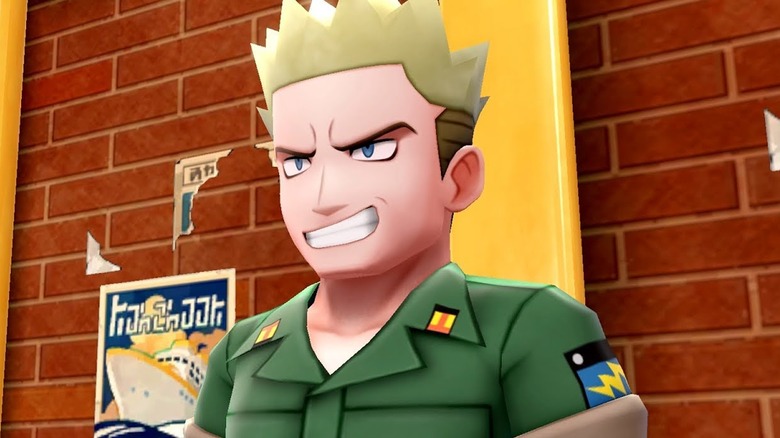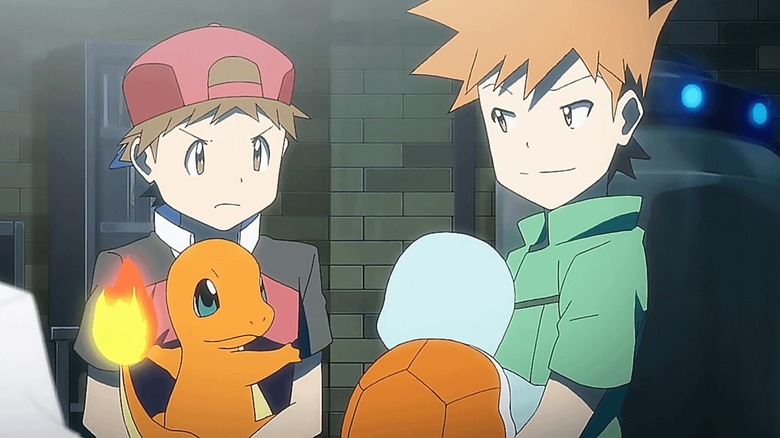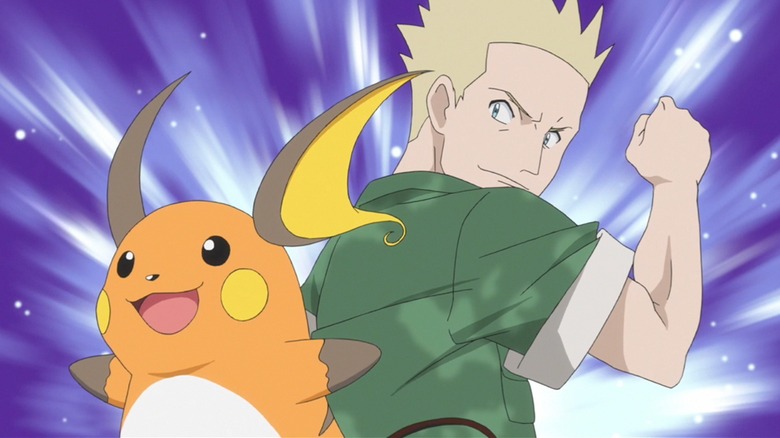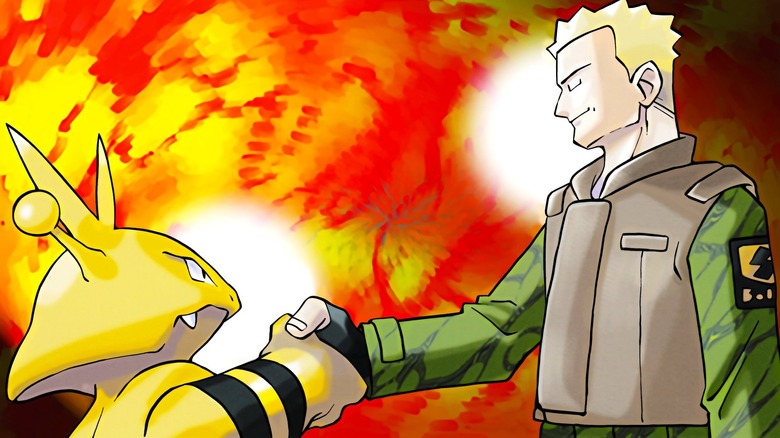The Darkest Pokémon Fan Theory Actually Makes A Lot Of Sense
The world of "Pokémon" is a place of wonder. It's a land full of epic battles and legendary creatures, a place where every kid dreams of one day leading a team of their own to victory and becoming a Pokémon Master. By that token, however, it is also a land in which those same young kids are able to roam the wilderness and bustling city streets without adult supervision. Several businesses are also seen to be run by young adults in many of the games, while others are overseen by elderly people who look like they should have retired long ago. On its surface, this may seem like a fun decision on the part of the developers to help young players relate to the protagonist as they set out on their own, but some fans believe it's indicative of something much darker.
"Pokémon" is no stranger to wild fan theories and urban legends. Since Generation One, schoolyard stories have circulated about Mew hiding under a truck, or that holding down certain buttons will make your Poké Balls more effective. For nearly as long, fans have subscribed to a theory about the Great Pokémon War, which paints the entire series in a very different light.
The Great Pokémon War and a world without dads
The Great Pokémon War theory stems from a few odd facets of "Pokémon Red" and "Blue," the games that kicked off the franchise. Firstly, players have noted that there are comparatively fewer adult male NPCs in the first game. For instance, players never meet the fathers of either the player character (Red) or his rival. A few references to Red's dad remain in the game, but the man's actual whereabouts remain unclear. All that we know for sure is that he'd be proud of his son and he likes sports, at least according to these scant bits of dialogue.
In the "Pokémon" anime, Ash Ketchum's father is likewise missing, apparently off somewhere else while his son wanders from continent to continent for the better part of three decades of television. The Great Pokémon War fan theory holds that characters like Mr. Ketchum, Professor Oak's son, and many other men were called upon to defend the Kanto region in a bloody battle — a battle that involved Pokémon. Fans who subscribe to this theory believe that most of the people who fought in the war did not make it back home in one piece, if at all. This would supposedly explain the sparse population of adult men in Gen One "Pokémon" games, as well as the heavy emphasis on battling among the younger generation of characters.
Lt. Surge's background
The real smoking gun for this theory is a monologue delivered by Vermillion City Gym Leader Lieutenant Surge, who is always seen clad in combat fatigues and dog tags. In Generation One, the character makes a few pointed references to serving in a war in his younger days. Upon meeting the player character, Surge shouts, "You won't live long in combat! That's for sure! I tell you kid, electric Pokémon saved me during the war! They zapped my enemies into paralysis! The same as I'll do to you!" This tells us a few things: For one, Lt. Surge clearly has some unresolved issues if this is how he reacts to a kid simply walking into his gym. On top of that, it sounds like Surge fought in a particularly brutal war — perhaps one so terrible that it decimated the population?
Some fans have tried to place Surge in a war from real world history, with some guessing from his age and the release year of the game that he may have served in the Gulf War. Others have taken Surge's diatribe as yet another sign that the "Pokémon" franchise takes place in a world ravaged by a horrific fictional conflict.
Later installments also reference Surge's military service, but don't specify what kind of war would also draft Pokémon as loyal participants/weapons. Some fans theorize that this war might have become especially bloody when regular Trainer restrictions were dropped, allowing soldiers to carry an unlimited number of monsters to the frontlines. With this in mind, it makes sense why the anime version of Mewtwo was grown in a lab. The various regions of the world may have started engineering their own Pokémon in a kind of evolutionary arms race.
Not everyone buys the Great Pokémon War theory
The Great Pokémon War theory is a fun exercise in trying to put together some of the gap in "Pokémon" history, but for many fans, it just doesn't hold much weight. A number of gamers have pointed out that the remakes of Generation One's games, "FireRed" and "LeafGreen," feature a heavier adult presence. The devs probably wouldn't have added these folks in if the war was part of the original planned narrative. Additionally, it wouldn't make much sense for the rules around Pokémon trading and battling to be as relaxed as they are. Imagine if people were just casually battling with nuclear missiles in the street; that's basically what random Trainer battles would be like in a post-Pokémon-War world.
It's also worth noting that Red's father was part of an early build of "Pokémon Red" and "Blue"/"Green" that leaked a few years ago, suggesting that maybe the character was simply left out due to a memory issue. Additionally, more adults have populated the world of Pokémon in recent sequels, which could support the latter explanation. Then again, it could mean that the war has been over long enough for characters who might have been drafted to instead grow up and start families.
These theories make a good bit of sense (even with a few logic leaps mixed in), but many fans argue that it's unlikely that the developers inserted such a dark backstory into games meant for kids. Even so, this is one theory that will no doubt continue to fascinate "Pokémon" fans for years to come.




